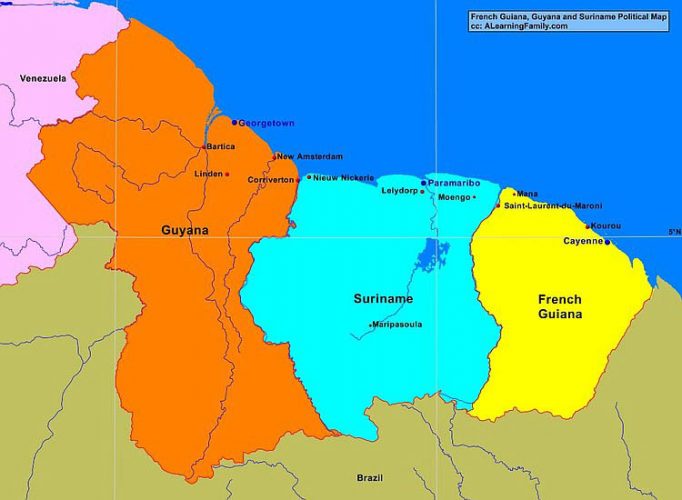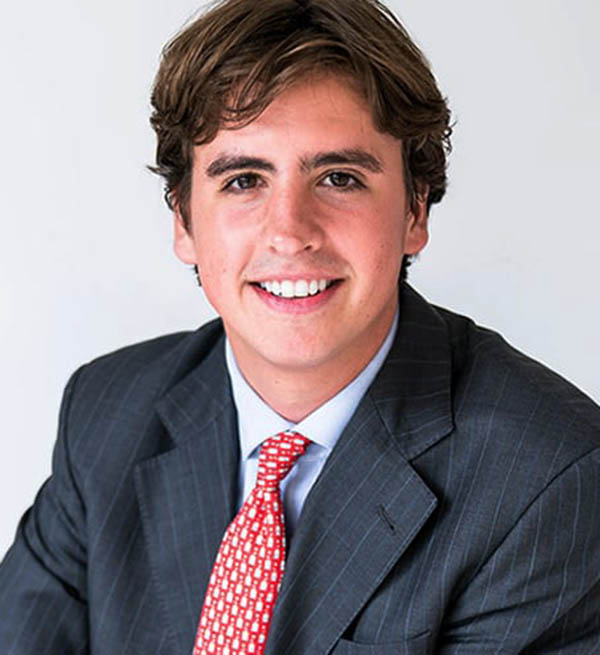The elimination of systematic corruption, which is present in both Guyana and Suriname, is crucial to the two countries realizing their socioeconomic dreams from their respective multi-billion barrel oil fortunes, according to Arthur Deakin, a Co-Director of American Market Intelligence (AMI), in an article published earlier this week by News Source in New York.
This week’s article follows an earlier one by Deakin in which he frowned on what is believed to be the incumbent political administration’s preference for a Sovereign Wealth Fund (SWF) similar to that employed by the Central Asia Republic of Kazakhstan.
The issue of the option that Guyana should employ in its choice of a SWF for the management of the country’s oil earnings has, in recent weeks, attracted some measure of public comment locally.

“A culture of bribes, patronage and nepotism is the greatest danger to both countries’ prosperity. Racial and political infighting in Guyana has also prevented the country from moving forward at a faster speed as projects have been delayed and elections have been disputed,” Deakin wrote.
Suriname, Deakin said, needs to pursue “a collaborative political approach” that will “avoid some of the bureaucratic interruptions seen in Guyana that are especially harmful for an economy growing at such a rapid pace.”
In his earlier article Deakin had expressed concern that the Kazakhstan SWF model, which the government here is believed to favour, contained loopholes that render it vulnerable to corrupt practices. In his more recent article he recommended that Suriname create “international and domestic accountability bodies, in addition to implementing the necessary framework that prevents the misuse of oil funds.”
Of late, Guyana has been experiencing a bout of energetic if limited public comment on the desirability of creating a SWF regime that properly protects the monies accumulated from the country’s oil resources from political abuse.
While the Irfaan Ali-led political administration has made pronouncements committing government to ensuring the safeguarding of the country’s oil resources, Deakin said that protection of those resources can be better assured in circumstances where “independent news outlets and a more robust educational system” that are “strongly correlated with transparency levels,” are in place.
“Although Guyanese leaders have publicly said a lot of the right things, in practice, few actions have been implemented so far,” Deakin wrote. Suriname, he said, “must take note to avoid committing the same mistake.”
Persisting on the theme of “what has and has not worked” for Guyana and how Suriname can learn from it, Deakin said, “Suriname needs to pass a new law creating a fund specifically for its oil resources that is professionally managed by an independent body with no political connections” and which set “clear thresholds on the amount that can be spent annually and strict accountability measures that ensure the funds are being spent transparently. It is also vital for there to be a clear delineation between the fund’s managers and politicians, making it less likely for its oil funds to be misused and exploited.”
Contextually, Deakin frowned on the reported appointment of the wife of Suriname President Chan Santoki to “the supervisory board of Staatsolie, the state-owned company,” a move which he said, “signals that Suriname is heading down the wrong path. The people must demand change before it’s too late.”
Meanwhile, he said that Suriname has an opportunity to learn from Guyana’s failure “to implement many laws prior to first oil that would have allowed for greater local participation and more investor clarity.” According to Deakin, the country’s local content policy “is still under consultation and will likely be under review for many months to come.”
Suriname, Deakin said, can use the Guyana experience to ensure that it has these frameworks in place “before first oil.” Suriname should move, prior to first oil, to consult with “key private and public stakeholders, as well as the local communities,” which course of action, he said, “will allow for the development of realistic thresholds that can be fulfilled by the country’s current resources on the ground.”
To avoid the “Dutch disease,” he added, “agriculture, real estate, manufacturing, and mining are some of the key sectors that must be incentivized both in terms of fiscal and regulatory frameworks.”





